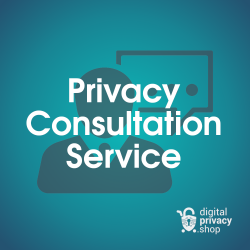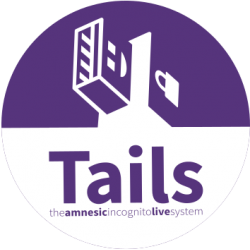Continue your journey to reclaim your right to digital privacy with this collection of online resources. The organizations linked below advocate for individual privacy and provide valuable information to those seeking privacy tools, news, guides, and other resources. Enjoy!

KYCnot.me: Goodbye KYC, hello privacy
Know your customer (KYC) is a well-known phrase among crypto enthusiasts, but it pertains to anyone that wants to uphold their right to privacy and anonymity online. KYCnot.me is an invaluable collection of services (not just crypto exchanges, but VPNs, SMS, SIM cards, hosting, and more) that do not require disclosing personal information to sign up.

Reclaim the Net: #1 source for news and current event
Reclaim the Net is a group in London, England that reports current events and news relating to online privacy. The amount of research performed and quality of their news reporting is remarkable. They have a membership model in which members pay annually or a one-time subscription for access to articles, guides, and recommendations. We have been a subscriber and supporter for years and enjoy the frequency and quality of their news reporting. You can also support them through their merchandise store.

Privacy Tools: Comprehensive list of privacy-focused apps and services
The team at Privacy Tools maintain one of the Internet's most comprehensive list of privacy-focused apps and services,. They discuss the best alternatives to tech giants' products in categories like web browsers, operating systems, VPNs, email clients, chat clients, cloud storage, and many more. We recommend perusing all their categories. You are bound to find the right privacy tool you're looking for on their site.

Privacy Guides: Organized knowledge base of guides and tools
Privacyguides.org is a non-profit site created by some of the same writers at Privacy Tools. They offer an impressive list of updated privacy hardware and software. In addition, their knowledge base offers numerous guides and tips on how to achieve better privacy online. In addition, their explanation of the fundamentals of privacy, especially in the section on Threat Modeling is second to none.

Cyber Insider: Best in-depth reviews of privacy apps, tools, and services
Beginning in 2017 under the name "Restore Privacy", the Cyber Insider team publishes reviews of privacy apps, tools, and services. The depth of their reviews and insight is what separates them from other resources. They are not sponsored and don't run ads, making them a truly unbiased voice. Just on VPNs alone, they have amassed an impressive list of in depth reviews on dozens of VPN services.

Electronic Frontier Foundation (EFF): Effective voice holding Big Tech accountable
While we don't agree with their politics or social beliefs, the Electronic Frontier Foundation (EFF) has been an effective voice for protecting online privacy, and holding Big Tech accountable. Many web administrators (including us) have benefited from CertBot, an open-source software tool that generates free website encryption certificates (HTTPS). Another incredibly powerful tool is Atlas of Surveillance, a database that documents police surveillance technologies by city, county, and state agencies.

The New Oil: Beginner's guide to data privacy and cybersecurity
The New Oil is for anyone who is not a programmer, sysadmin, or IT professional. Set up as a guided walk through, the site starts at the beginning, addressing the most important steps for implementing online privacy. Even if you are technically knowledgeable, it's worth going through their guides to find helpful nuggets of information.

Tech Lore: Tutorials, courses, and reviews for privacy seekers
We found Henry and the TechLore group on Odysee. He published an impressive review of CalyxOS and several other open-source Android custom ROMs. They have an entire series of privacy guides in video format called Go Incognito. It's a great place to start for anyone beginning their journey into online privacy and security. Also, for everyone switching to degoogled phones, check out their tool called Plexus. It's a database of reports whether Android apps work or not on de-googled phones and if MicroG is required. Very useful!

Awesome-Selfhosted: Host your own online services
There is no better way to accomplish privacy than to host your own service. No big tech required! We stumbled upon Awesome-Selfhosted github page from their reddit community, r/selfhosted. As Linux enthusiasts, we love building servers. Awesome-Selfhosted provides an incredible list of open-source servers and services that can be self-hosted.

Hitchhiker's Guide to Online Anonymity: Most comprehensive guide on the internet
If there was ever an advanced college course in online personal privacy or anonymity, The Hitchhiker's Guide to Online Anonymity would be it. If you decide to print the PDF version of the guide, be sure load plenty of paper in your printer. If you don't read the entire guide, keep a copy handy for reference.

Switching Software: Helpful list of alternatives to Big Tech software
Switching.software has a well curated list of alternative software and services that is worth bookmarking. Over the years, we have found several solutions there that helped us move away from Google. They know their open source software and recommend great products. For example, an alternative to twitter and facebook is Mastodon and Friendica, both excellent open-source choices.






























